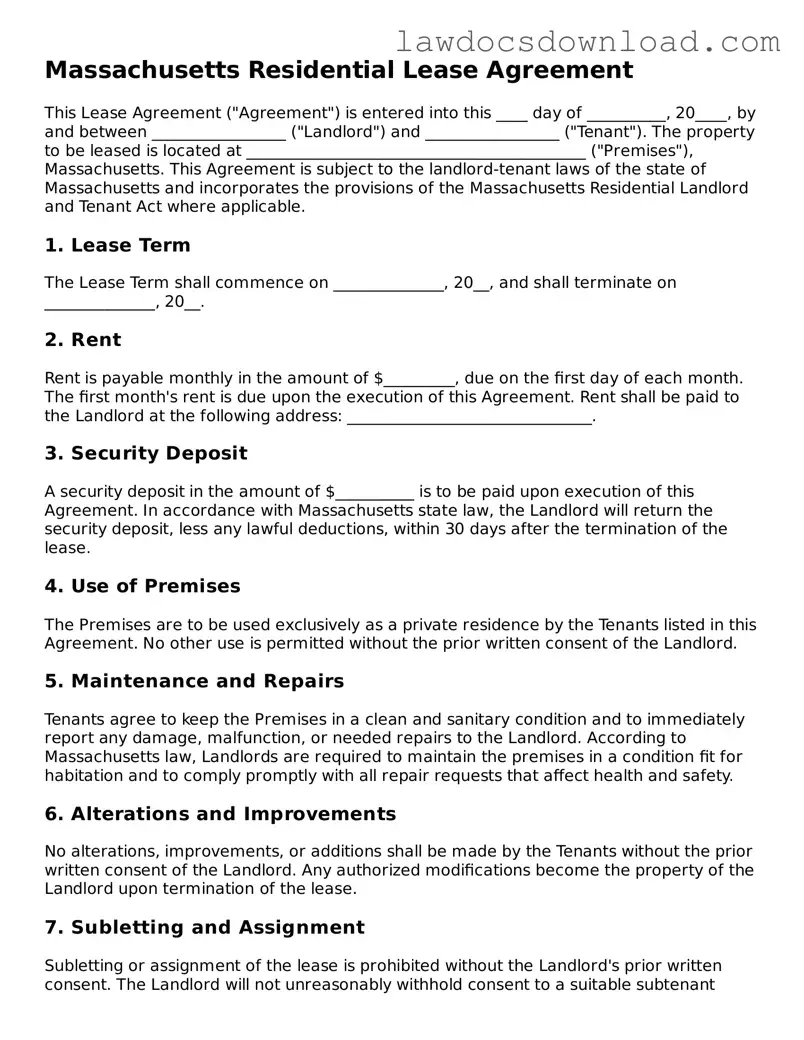Massachusetts Residential Lease Agreement
This Lease Agreement ("Agreement") is entered into this ____ day of __________, 20____, by and between _________________ ("Landlord") and _________________ ("Tenant"). The property to be leased is located at ___________________________________________ ("Premises"), Massachusetts. This Agreement is subject to the landlord-tenant laws of the state of Massachusetts and incorporates the provisions of the Massachusetts Residential Landlord and Tenant Act where applicable.
1. Lease Term
The Lease Term shall commence on ______________, 20__, and shall terminate on ______________, 20__.
2. Rent
Rent is payable monthly in the amount of $_________, due on the first day of each month. The first month's rent is due upon the execution of this Agreement. Rent shall be paid to the Landlord at the following address: _______________________________.
3. Security Deposit
A security deposit in the amount of $__________ is to be paid upon execution of this Agreement. In accordance with Massachusetts state law, the Landlord will return the security deposit, less any lawful deductions, within 30 days after the termination of the lease.
4. Use of Premises
The Premises are to be used exclusively as a private residence by the Tenants listed in this Agreement. No other use is permitted without the prior written consent of the Landlord.
5. Maintenance and Repairs
Tenants agree to keep the Premises in a clean and sanitary condition and to immediately report any damage, malfunction, or needed repairs to the Landlord. According to Massachusetts law, Landlords are required to maintain the premises in a condition fit for habitation and to comply promptly with all repair requests that affect health and safety.
6. Alterations and Improvements
No alterations, improvements, or additions shall be made by the Tenants without the prior written consent of the Landlord. Any authorized modifications become the property of the Landlord upon termination of the lease.
7. Subletting and Assignment
Subletting or assignment of the lease is prohibited without the Landlord's prior written consent. The Landlord will not unreasonably withhold consent to a suitable subtenant approved by the Landlord.
8. Governing Law
This Agreement shall be governed by and construed in accordance with the laws of the state of Massachusetts.
9. Entire Agreement
This document contains the entire agreement between the Landlord and Tenant regarding the rental of the Premises and supersedes all prior discussions, negotiations, or agreements. Any modification to this Agreement must be in writing and signed by both parties.
IN WITNESS WHEREOF, the parties have executed this Agreement as of the date first above written.
Landlord's Signature: ___________________________
Tenant's Signature: ____________________________
Date: ________________________________________

